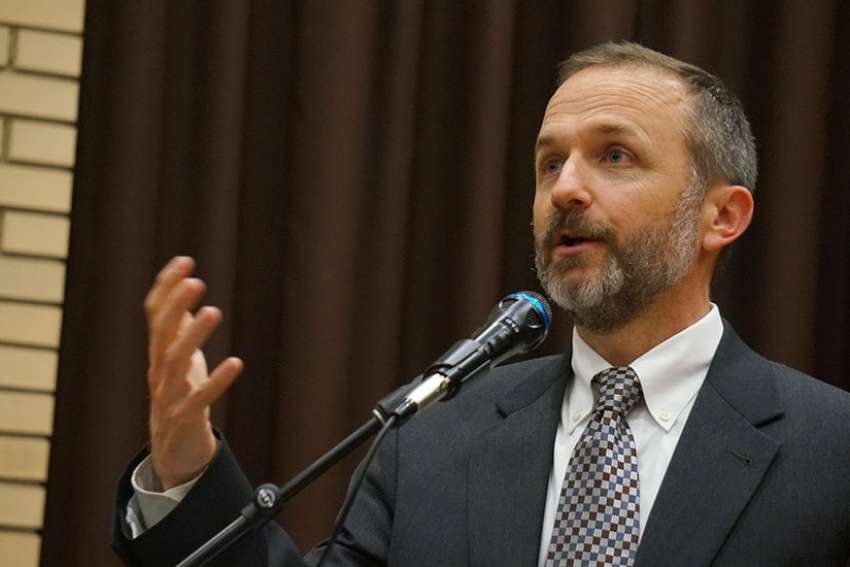The battle can be won using sound medical arguments that are aligned with a doctor’s oath to protect the health of the patient.
Curlin, a palliative care physician and co-director of the Theology, Medicine and Culture Initiative at Duke University in Raleigh, N.C., has been called as an expert witness in the case of five Ontario doctors who are challenging the College of Physicians and Surgeons of Ontario’s policy that would force physicians to make effective referrals on abortion, euthanasia and other procedures they may find morally objectionable.
“The policy is outrageous and unprecedented,” Curlin said at the annual Weston lecture sponsored by Augustine College on March 16. “It’s also incoherent.”
Canada now has the most liberal euthanasia and assisted suicide policy in the world, he said.
Curlin expressed concerns about the “docility” and fear with which physicians are reacting to the policy, considering an estimated 10,000 Ontario physicians oppose it. “How many have publicly made it clear ‘I will not follow this policy’?” he asked.
“Don’t wait until your colleagues agree with you before you act according to your best judgment,” he said. “Act peaceably and resolutely and be prepared to give an answer” concerning why professional judgment is important, not that you are acting upon your rights, he said.
He warned that arguments in defence of conscience rights could run into trouble because of changing public attitudes. He called any remaining public respect for conscience rights a “residue” of past presumptions, adding that the cultural foundations of Judeo-Christian thought that have been “eroded for generations.”
Just as society has recently seen sudden reversals on the definition of marriage and on transgender issues, the same could happen with defence of conscience rights, he said.
“When a tipping point is reached, society pivots quickly,” he warned.
Physicians are not to engage in practices that injure health, Curlin argued. Each section of the Hippocratic Oath corresponds to a temptation a physician might experience, he said, since their expertise can be used to poison people as well as heal them.
Doctors and patients know they will be tempted to kill patients to end their suffering, but the Oath was there to “ensure the safety of the patient.”
But now “there is no longer a consensus that medicine is for the patient’s health,” he said, coupled with a “widespread skepticism regarding there is a given end or purpose for human beings.”
He called this a “progressive deconstruction” of the end of medicine. Doctors are increasingly seen as “health care providers” not physicians who promote the health of patients, he said.


